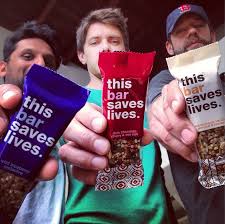Home
About Us
Page 2
The program also seeks to deeply comprehend the factors that contribute to the success and/or failure of islet transplantation protocols and more importantly, to develop approaches for continued improvements that could essentially result in sustained graft function and therapeutic durability.
|
|
The National Institutes of Health and the National Institute of Diabetes and Digestive and Kidney Diseases are willing to administer funds in the amount $2,650,000 to support the initiatives of the program.
The institutions and organizations who will be considered eligible to participate in this program are the following:
a) State Governments
b) County Governments
c) City or Township Govenments
d) Special District Governments
e) Independent School Districts
f) Public and State Controlled Institutions of Higher Education
g) Native American Tribal Governments
h) Public Housing Authorities/Indian Housing Authorities
i) Native American Tribal Organizations (other than Federally recognized tribal governments)
j) Nonprofit Organizations
k) Private Institutions of Higher Education
l) For-profit organizations other than small businesses
m) Small Businesses
The United States Department of Health and Human Services, the mother agency funding the The Collaborative Islet Transplantation Registry Program, is the country's leading program that's constantly working towards protecting the health of all Americans and providing fundamental human services to all.
The Collaborative Islet Transplantation Registry Program
Back to Page 1
About The Author Michael Saunders is an editor of TopGovernmentGrants.com one the the most comprehensive Websites offering information on government grants and federal government programs. He also maintains Websites providing resources on environmental grants and grants for youth programs. |
Additional Resources
category - Health Grants
National Science Foundation's Smart Health and Wellbeing Program
Cancer Education Grants Program
Academic-Community Partnership Conference Series Program
Behavioral Risk Factor Surveillance System
Follow @topgovtgrant
Social Entrepreneurship
Spotlight
A Bar That Saves Children’s Lives

Ryan Devlin, Todd Grinnell and Ravi Patel have traveled to Africa on a humanitarian trip a few years back, encountering children suffering from severe malnutrition get healthy through Plumpy’Nut®.
